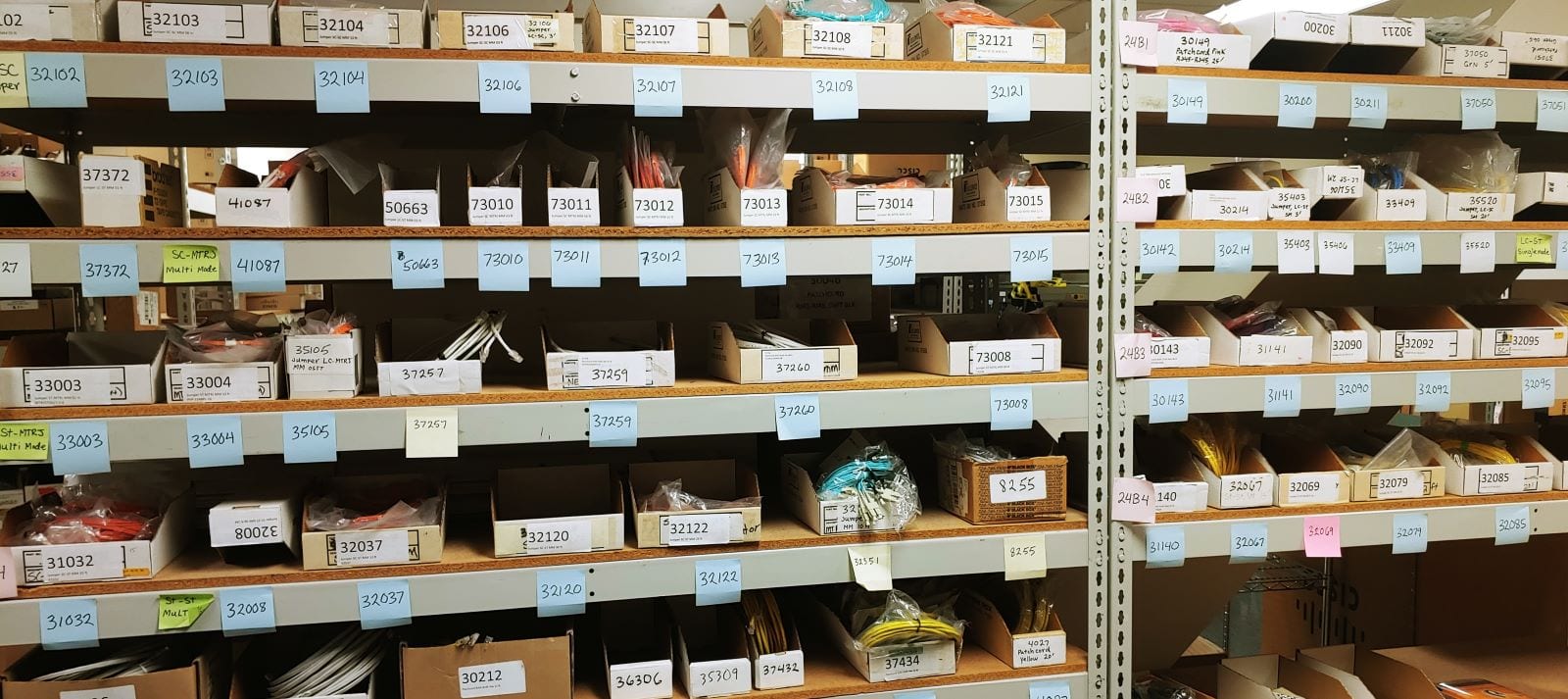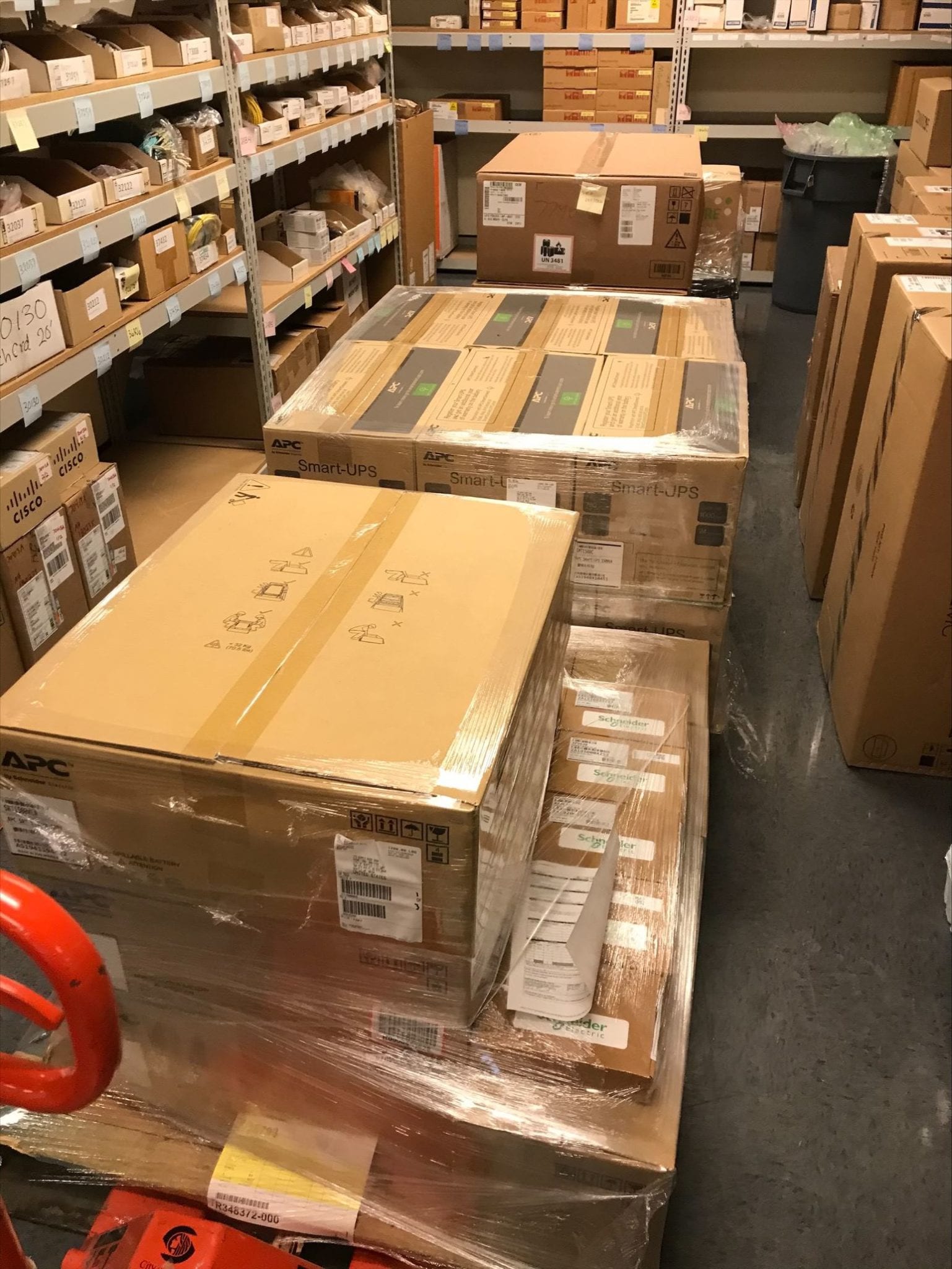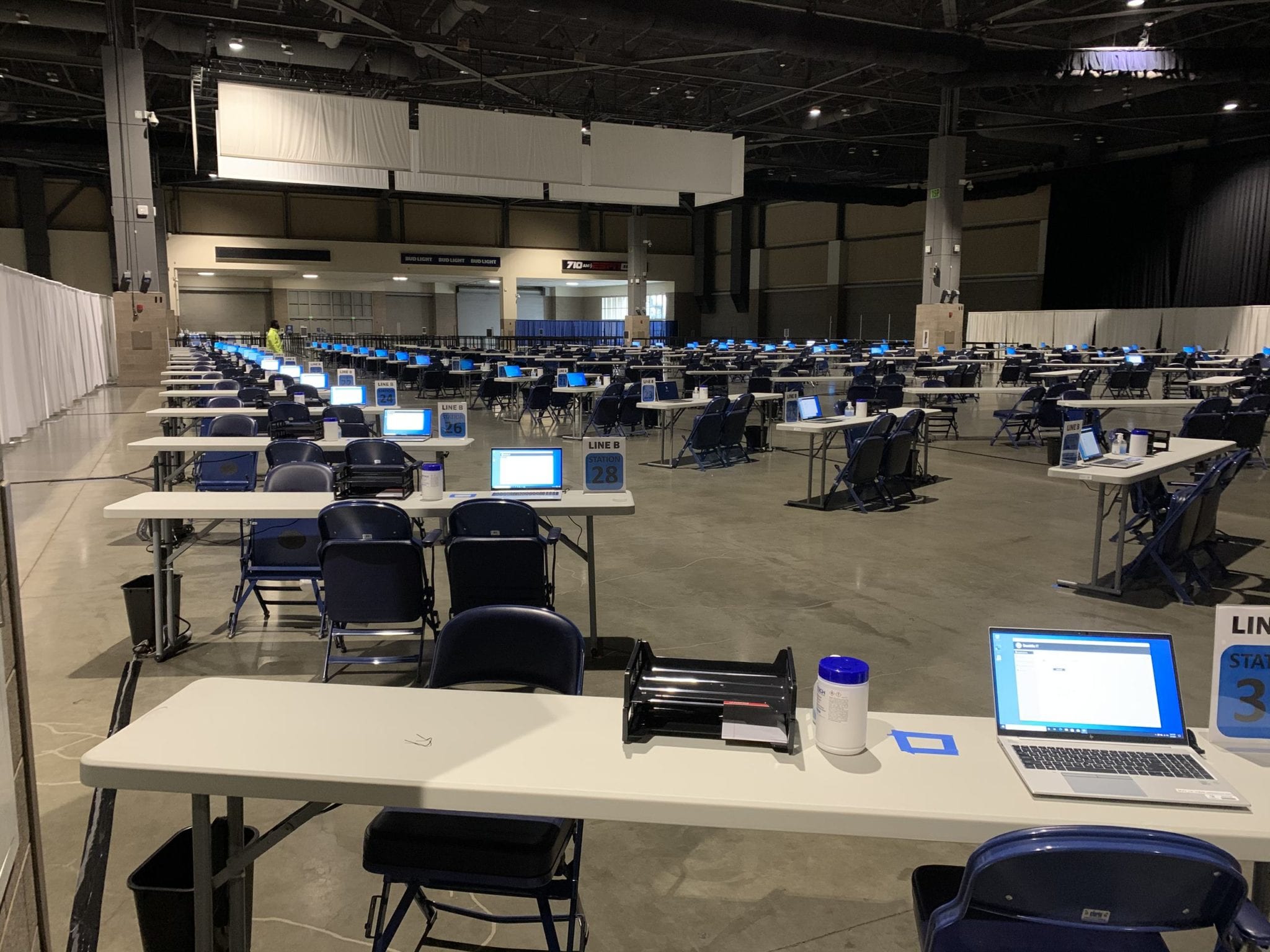The Asset Management team is a trusted partner at the core of Seattle Information Technology (Seattle IT) operations. They assist in managing, tracking, and fulfilling all IT related goods in order for our staff to deploy and support technology operations. This includes device hardware and software, technology infrastructure, telecom, networking and server equipment, and mobile devices. Their services are critical to supply the equipment needed for all City departments to function. Seattle IT’s Asset Management essential personnel have been working on site throughout the COVID pandemic and are dedicated to ensuring no disruption in service. Every day, the job of the Asset Management team is to make purchases and manage the most essential equipment to the City.

Below are highlights and stats from the team, along with features of some projects the team played a key role in supporting.
Highlights:
- This year, Asset Management submitted 56 Purchase Orders for standard stock items for 3,894 items with a total cost over $1,000,000. So far, Asset Management has issued 578 new computer devices and processed close to 1,700 purchase requests. Only 4% of standard hardware and software orders are going through the formal process, resulting in a much quicker turnaround for our customers.
- Since March 1, 2020, Asset Management has received and issued nearly 9,000 SKUs and tagged and deployed over 250 assets with purchases totaling more than $1,000,000.

Activities:
- Software License Management: Asset Management is responsible for keeping an inventory of the software licenses of the City’s 2,826 software titles. The team has a total count of almost 6,500 software licenses in their inventory.
- Device inventory: The team has processed 1,244 inventory database update tickets related to New / Departing / Transferring employees.
- CWA Accounting Inventory: The Asset Management team works with Seattle IT’s Accounting Team on behalf of the City Auditor to perform a bi-asset inventory of assets.
- Asset Management participates in software audits to ensure that they are in license compliance. They are currently working with KPMG on an audit of IBM software.
Device support:
- Supplying 2,000 laptops, 4,000 headsets, and numerous accessories to support City employees in a teleworking environment.
- Supplying equipment to support the Lumen vaccine effort which included 300 laptops, numerous Android tablets, and cell phones.
- The team manages and maintains 7,800 Verizon lines of service and 2,005 AT&T services by processing all the wireless entries including new lines, changes, and disconnects that occur in AT&T, Verizon, and Sprint in the Pinnacle inventory and billing system. This includes receiving the bulk of the City’s cellular devices and coordinating delivery to department coordinators. The team maintains the City of Seattle ordering portals for cellular carriers as well as processing monthly wireless billing for the top three carriers, totaling close to $500,000 per month.
Lifecycle management:
- Providing new standard equipment on a 5-year cycle.
- Documenting and processing of all surplus equipment.
- Providing emergency replacements for out-of-warranty failed standard devices.
- Facilitating uplifts from PCs to laptops at a lower cost than purchasing new.
- Assisting departments in locating old and unused equipment for replacement or surplus to reduce cost.
- Auditing City inventory records for accuracy.
- Ensuring data retention, destruction and compliance processes are followed before leaving the City.

The team was a critical partner in fulfilling the hardware used to stand up the Lumen Field vaccine site. The site is largest civil-led mass vaccination site in the country. In just six weeks the City of Seattle, in partnership with Swedish Hospital and First & Goal, Inc., transformed 190,000 square feet at Lumen Field Event Center into a massive immunization clinic that provided up to 22,000 vaccines a day, or 150,000 a week. The Asset Management team managed the lifecycle replacement of IT’s standard computers, so that City employees had a healthy and functioning computing environment at the vaccination site. The team was also onsite during operating hours to ensure the technology worked for the medical staff. The Lumen Field vaccination clinic, and the work the city provided to residents, was praised nationally as a example of a city working to flatten the curve and keep everyone healthy.
But they’ve faced some challenges during the pandemic dealing with supply and demand constraints world wid. Last year at the height of the COVID pandemic, the team struggled with the availability of laptops, web cams and headsets, as everyone was competing to equip a teleworking workforce. This year, they are experiencing hardware supply issues caused by the worldwide shortage of semiconductors and chips. They manage these market constraints by planning and forecasting to accommodate shortages, looking for creative ways to re-allocate equipment to fill immediate needs, and also by maintaining and establishing good vendor relations to give as much forewarning as possible and offer alternative supply channels and products.